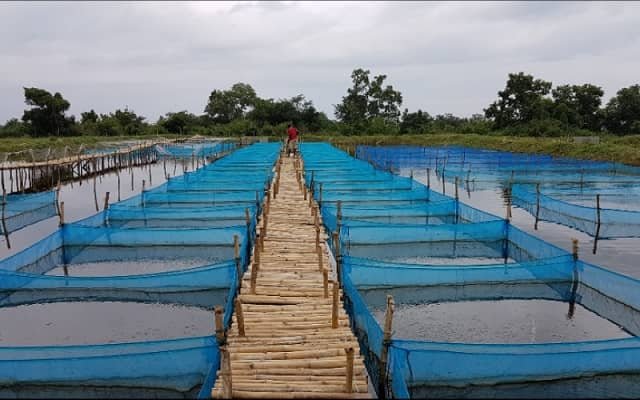
In a world facing a growing population, dwindling resources, and increasing climate concerns, the search for innovative food solutions has become more urgent than ever.
Over the past decade, researchers have been developing innovative functional food products to meet the demand of the global population and ensure environmental sustainability.
Fortunately, nature harbors a hidden gem: microalgae, promising a healthier and more sustainable future for our plates and our planet. Microalgae are characterized by their high biomass productivity, remarkable nutritional qualities, organoleptic characteristics, and tolerance to biotic and abiotic stress.
A team of researchers from Swami Rama Himalayan University, and the Indian Institute of Technology Jodhpur, among other organizations, published a review emphasizing the potential of microalgae as a healthy and sustainable dietary alternative.
The study also highlights the importance of bioactive metabolites obtained from microalgae in reducing greenhouse gas emissions, wastewater treatment, bioremediation, photocatalytic degradation, nanoparticle production, nutraceuticals, and resilience to abiotic stress.
Contribution of microalgae to human nutrition
Microalgae have been commercially cultivated for use as food for humans and animals, as well as a source of commercially important metabolites in various industries.
Forget extensive farmlands and crops that require vast amounts of water. Microalgae can thrive in minimal space and water (fresh or marine), producing remarkable nutritional richness:
- Abundant protein: With a protein content rivaling that of meat and legumes, microalgae offer a sustainable alternative to animal sources, ideal for both vegans and carnivores.
- Fatty acids: Packed with omega-3, these microscopic wonders have the potential to support brain health and cognitive function.
- Antioxidants: Their antioxidant shield helps combat cellular damage, potentially reducing the risk of chronic diseases.
- Vitamins: A mix of microalgae provides vitamins such as A, B12, and E, vital for numerous bodily functions.
But the benefits of microalgae extend far beyond our diet. These tiny microorganisms are key to environmental sustainability:
- Heroes against carbon battle: Microalgae devour greenhouse gases, turning them into valuable biomass, making them a weapon in the fight against climate change.
- Water savings: While conventional crops consume water, microalgae can thrive in wastewater, purifying it in the process.
- Less land use: Requiring minimal land for growth, microalgae cultivation does not contribute to deforestation or biodiversity loss.
Metabolites of microalgae
Microalgae produce a range of pigments, vitamins, phytosterols, amino acids, polyunsaturated fatty acids, and proteins, among others, that are important in human and animal nutrition, providing adequate nutrition and enhancing the immune system.
Stay Always Informed
Join our communities to instantly receive the most important news, reports, and analysis from the aquaculture industry.
The study also reports that “microalgae are rich in antioxidant vitamins (A, B1 (thiamine), B2 (riboflavin), B3 (niacin), B6 (pyridoxine), and B12 (cobalamin), C, E, K, and nicotinic acid.”
Benefits for human health
The study describes the benefits of consuming microalgae for human health, as they include a variety of components that induce cardiovascular, anticancer, anti-inflammatory, anticoagulant, antiviral, antibacterial, and antifungal effects.
The authors of the study provide a detailed description of the antioxidant properties, immunomodulatory effects, cardiovascular health, and neuroprotective effects of microalgae.
The green revolution driven by microalgae
According to researchers, the industrial revolution driven by microalgae has proven to be a significant step in meeting the growing demand for energy and achieving sustainable development goals (SDGs).
“The pattern shift occurring in the algal sector is what subsequently emerges as a new model in the sequence of events,” the researchers highlighted.
Conclusion
The researchers conclude that as the global food industry advances, microalgae are likely to be crucial in determining how food is produced and consumed in the future. They also indicate that: “Considering the production and processing aspects of microalgae, they are more efficient than cultivating plants or raising animals.”
Finally, the study concludes that, as researchers seek new varieties with outstanding nutrient profiles, better production techniques, and higher yields, the manufacturing of food components based on microalgae is likely to be more effective and economical.
Contact
Vijay Kumar
Himalayan School of Biosciences
Swami Rama Himalayan University
Jolly Grant, Dehradun, 248016, Uttarakhand, India
Email: vijaygkp@gmail.com
Reference (open access)
Naik, B., Mishra, R., Kumar, V., Mishra, S., Gupta, U., Rustagi, S., … & Rizwanuddin, S. (2023). Micro-algae: Revolutionizing food production for a healthy and sustainable future. Journal of Agriculture and Food Research, 100939.
Editor at the digital magazine AquaHoy. He holds a degree in Aquaculture Biology from the National University of Santa (UNS) and a Master’s degree in Science and Innovation Management from the Polytechnic University of Valencia, with postgraduate diplomas in Business Innovation and Innovation Management. He possesses extensive experience in the aquaculture and fisheries sector, having led the Fisheries Innovation Unit of the National Program for Innovation in Fisheries and Aquaculture (PNIPA). He has served as a senior consultant in technology watch, an innovation project formulator and advisor, and a lecturer at UNS. He is a member of the Peruvian College of Biologists and was recognized by the World Aquaculture Society (WAS) in 2016 for his contribution to aquaculture.




